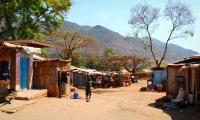Does a human rights-based approach to development benefit vulnerable groups?

In a research article in The International Journal of Human Rights, professor Morten Broberg from University of Copenhagen and the institute's research director Hans-Otto Sanoshow that a human rights based approach to developmentprovides new avenues for providing help to vulnerable groups, but they also show that it cannot completely replace the traditional poverty-oriented approach. They therefore make it clear that it is important to ensure that a poverty-oriented approach continues to play an important role.
Traditionally, law has played only a minor role in the field of international development assistance to developing countries. However, over the last decade, in particular, the question of applying a so-called 'human rights-based approach'– orHRBA as it is often abbreviated– has frequently arisen within the development cooperation context.
In the article the two authors set out to define this approach, how it is applied, and to identify its central agents and principal components. Through examples they show how the approach works in practice, and they identify and discuss three human rights principles that play particularly important roles in its implementation:
- participation and inclusion
- non-discrimination and equality
- accountability
The two authors also show that in terms of implementation, the approach is related to the processes of empowerment, forms of advocacy, and the use of legal instruments in defence of groups of people who are poor, discriminated against or marginalised. Finally, the authors conclude that a human rights-based approach provides new avenues for providing help to vulnerable groups; in order to be able to identify the poor, interdisciplinary work between human rights and development is required.
The article has been made full Open Access and therefore can be accessed free of charge by anyone interested at the website of The International Journal of Human Rights.
For further information, please contact:
- Professor Morten Broberg: morten.broberg@jur.ku.dk
- Research Director Hans-Otto Sano: hosa@humanrights.dk
